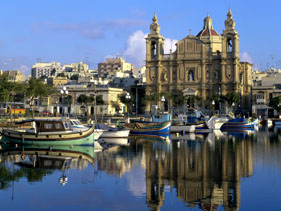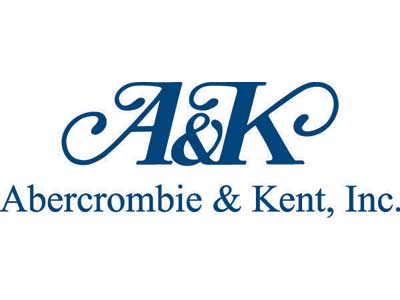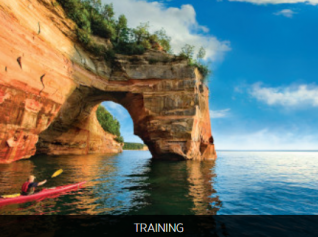It takes guts to be Malta

At its root sustainable tourism is about the political will of destinations to develop in ways that benefit their own communities as a result of a joined up approach to tourism development.
Tourism development thereby equals community development and enables communities to get all the sustainable benefits that tourism can offer – economic, social, environmental and cultural.
What then happens is that the tourist gets that much-vaunted current tourism buzz-word and bankable tourism asset– authenticity.

Sounds sensible, doesn’t it? Community directs its own tourism in its own way, acts as host to tourist guests. Tourist gets an authentic experience of the host’s destination. Same as any host would deliver to any guest.
Should happen again and again, shouldn’t it?
Tourists should get Dominican Republic in Dominican Republic, Bali in Bali, the Gambia in the Gambia etc
But do they? More often they get a version of the destination that is not at all authentic. Yes – it looks OK but actually at its root, very often it’s imported and homogenized.
Why? Because a combination of globalization and mass marketing and global tourism giants and the holiday buying public have created the sort of tourism that is could be anywhere. Of course it’s in their own interest – that way when one resort goes down another is ready to take its place and nobody can tell the difference.
Then the marketers add that special destination-relevant bit. Folk dances, hats, excursions, drinks, T shirts. Often deeply ersatz.
The process has a name, it’s called cultural commoditization.
And it takes guts to do it in a way that bucks the trend – even if it is the best, and ultimately the most profitable way.
It takes guts to treat tourism as a long-term issue rather than a cash crop when the money’s on the table NOW.
It takes guts to develop as a unique destination rather than just another commoditised beach, hotel, restaurant night club combo. Cos you don’t fit the global tourism formula.
I didn’t know much about Malta when I went there, but I knew that Malta is a small island in the Mediterranean with nice beaches. Close to Sicily and just a couple of hundred kilometers from Africa, And I knew that it had quite a bit of history, particularly as the base for the Knights of St John and the Knights Templar in the crusades.
And I knew that Malta had guts – the small island and its inhabitants withstood massive bombing during WW2 – sufficient to be the only nation honoured by the Brits with a medal – the George Cross.
So, I thought, classic winter sun destination with a bit of history and a lot of guts? I was almost totally wrong.
What I found was a destination with such a wealth of baroque architecture and amazing works of art that much of it is rightly a UNESCO World heritage site. An awesome cathedral housing gut-wrenchingly beautiful works of art by Caravaggio amongst others. And vast, elaborately-decorated historical buildings, now museums, chock full of beautifully displayed armour and weaponry from the island’s 250 year crusader era.

What I found were delightful communities that were so proud of their history and culture that what they offered (food, drink, dance, song, costume) was not only authentic and historic but deeply sophisticated.
What I found was a destination that appeared to manage its tourism deftly and democratically with long term aims to benefit both tourists and local communities..
Of course there are astonishingly beautiful beaches filled with happy holidaymakers too. There are big hotels, restaurants, cafes, bars, pizza joints, night clubs and casinos. There is quite a big sun, sea and sand incoming tourism business – specifically aimed at families.
But that is only part of Malta’s formula.
I was lucky enough to be shown around by the mayor of Mellieha , Robert Cutajar and it was easy to spot the level of political commitment behind the community tourism development in his eyes. Each destination we visited knew how to best showcase and manage their own tourism offer with the security that they won’t be lone voices. The political commitment to community tourism development is strong and palpable.
And do they know about sustainability? From an environmental point of view, Malta’s biggest problem is water – they are now one of the world’s leaders in the reverse osmosis process and it, and water-conservation measures are widely used. Many beaches are blue flag certified. All hotels can use the government’s environmental certification process – and many do.
Economically, culturally and socially – Malta is in control of its own destiny. Less than 2million tourists visit the island every year, but it’s more important what and where they spend and far less important how many of them there are.

Have the Maltese learnt sustainability by rote, or is it in their genes? To get your answer, just look at their buses. Long past their sell-by date in any other country, they have been lovingly maintained and preserved. Look at the cultural heritage – it couldn’t be more well cared-for. Look at the social impacts of tourism – well-managed by the communities.
The community of Mellieha has just played host to the European Destination of Excellence conference – there can be no more fitting venue.
Malta, I also found out, has its own, very distinct language (a mixture of Arabic and Latin). The country also features regularly in the ‘World’s Most Happy Nations’ top 20.
Maybe all that bravery, culture, community spirit and beauty is paying off sustainably!
Valere Tjolle
Valere Tjolle is editor of the Sustainable Tourism Report Suite
Masterclass special offer HERE
Get FREE contents guide to Sustainable Destination Report CLICK HERE:
 United Kingdom
United Kingdom United States
United States Asia Pacific
Asia Pacific












































EU airports bring back 100ml liquid rule
British Airways passengers endure 11-hour 'flight to nowhere'
CLIA: Anti-cruise demos could cause itinerary changes in Europe
Co-pilot faints, easyJet flight issues ‘red alert’
Gatwick braces for strike